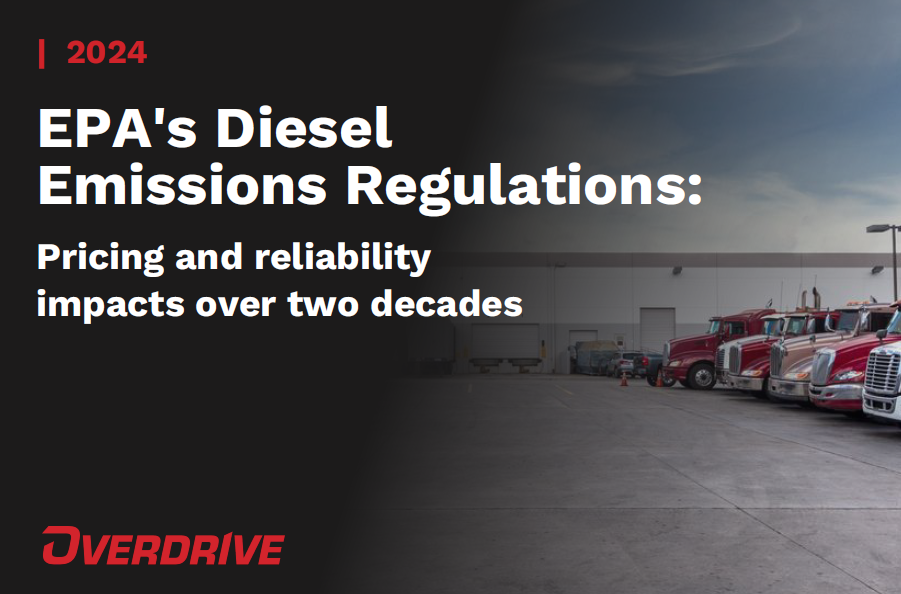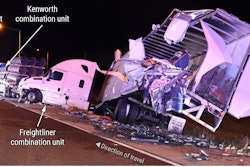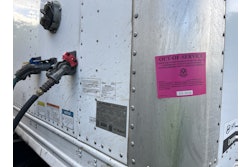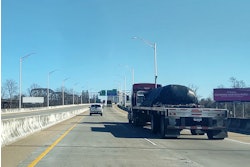The U.S. Senate on Thursday passed two joint resolutions that revoke two Clean Air Act waivers granted to the California Air Resources Board that allowed strict, state-level emissions standards targeting heavy-duty trucks. The Senate’s passage of the resolutions follows House approval on April 30.
Joint Resolutions 87 and 89, each passing by a 5-vote margin Thursday afternoon, formally provide Congressional disapproval under chapter 8 of title 5, United States Code, of the rules submitted by the Environmental Protection Agency relating to California’s Advanced Clean Trucks rule and its Omnibus Low-NOx rule, respectively.
The measures now head to President Donald Trump's desk for signature -- likely a formality as both he and Environmental Protection Agency Administrator Lee Zeldin have committed to regulatory rollback.
[Related: Electric trucks for Cali port drayage: CARB mandate will be repealed once and for all]
California Gov. Gavin Newsom and Attorney General Rob Bonta followed the Senate’s vote with an announcement that the state plans to sue “to protect California’s longstanding authority to maintain clean vehicle standards,” Bonta said in a post on X.
CARB itself lambasted the Senate's decision, with CARB Chair Liane Randolph calling the vote "unconstitutional, illegal and foolish."

"It’s an assault on states’ rights the federal administration claims to support that puts national air quality standards out of reach and will have devastating effects for the 150 million Americans who breathe unhealthy air every day," Randolph added. "These actions are contrary to the text of the Congressional Review Act, as recognized by the nonpartisan U.S. Government Accountability Office and the Senate Parliamentarian. California will pursue every available remedy to challenge these actions and defend our right to protect the public from dangerous air pollution. Turning the clock back on both cleaner combustion engine requirements and zero-emission technology is an attack on clean air."
Groups in support of the California rules, like the Southwest Energy Efficiency Project, echoed Bonta, noting in SWEEP's case that lawsuits appeared "inevitable" given past determinations "that the waivers in question are not federal regulations and therefore are not an allowable target" for Congressional Review Act oversight.
Trucking industry groups, though, were quick to applaud the Senate’s actions Thursday.
"I’m for everything that slows California down" with respect to emissions regulations, said David Owen, president of the National Association of Small Trucking Companies. "It’s very good news that somebody’s trying to create a buffer between what CARB does and the rest of the country."
At once, Owen lauded truck-technology developers for long work over decades now to substantially reduce particulate matter and NOx from diesel emissions, and has long suggested, "and I haven't had anyone contradict me," he quipped, that "the air coming out of the stacks is cleaner than the air going in" in some places. Untold tax dollars spent on electric charging infrastructure, he added, might better be spent "on the roads and bridges that we all need, every single state in the union."
Clean Freight Coalition Executive Director Jim Mullen told Overdrive sister publication CCJ that the "trucking industry will continue to pursue an 'all of the above' strategy to reduce commercial vehicle emissions, while at the same time protecting the supply chain and the economy."
Owen has long supported such an all-of-the-above strategy, too.
The Owner-Operator Independent Drivers Association, too, signaled its support with group President Todd Spencer noting that "[s]etting national policy is the responsibility of Congress, not California. It’s no wonder small-business truckers have left the state in droves to find better opportunities elsewhere."
Spencer added that "there is no convincing evidence that electric" trucks are viable for small-business truckers and owner-operators "given the high costs and inadequate charging infrastructure."
American Trucking Associations President and CEO Chris Spear called California “the breeding ground of all bad public policy,” adding that “it’s long past time that our nation’s leadership in Washington stop abdicating its responsibility to unelected, cubicle-dwelling bureaucrats in Sacramento who have no understanding of the real world and how it works.”
[Related: House votes to repeal CARB emissions waivers for ACT, Low-NOx rules]
ACT, which has been adopted by 11 states to date, requires medium- and heavy-duty truck manufacturers to sell increasing percentages of zero-emission vehicles from 2024-2035. The Low-NOx rule, which has been adopted by 10 states, imposes stringent emissions standards on new truck sales.
"The repeal of these poorly planned measures is a testament to the voice that our membership has provided and the resolve of our industry to tell our story,” said David Heller, senior vice president of safety and government affairs for the Truckload Carriers Association. "As a major issue during TCA’s 2024 Call-on-Washington, we emphasized the very notion that these rules would have been crippling to our nation’s supply chain and an obstacle to an industry that thrives on delivering a nation."
The American Truck Dealers group said the “onerous regulations have upended the trucking industry in CARB states through rationing of diesel trucks and forcing adoption of zero-emission technologies that don’t meet the performance and durability requirements for the industry,” ATD President Jacqueline Gelb said. “The industry has made great strides toward cleaner emissions, and without these mandates, it will continue to develop new technologies that reduce emissions and support the movement of our nation’s freight.”
While CARB had effectively waved the white flag on another strict emissions rule in its Advanced Clean Fleets rule back in January, the organization this month indicated in a court filing that it intends to formally repeal the regulation.
[Related: CARB backs away from ACF emissions rule, withdrawing waiver request]












